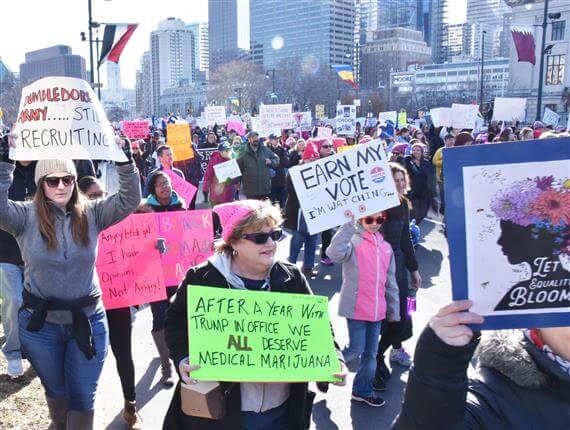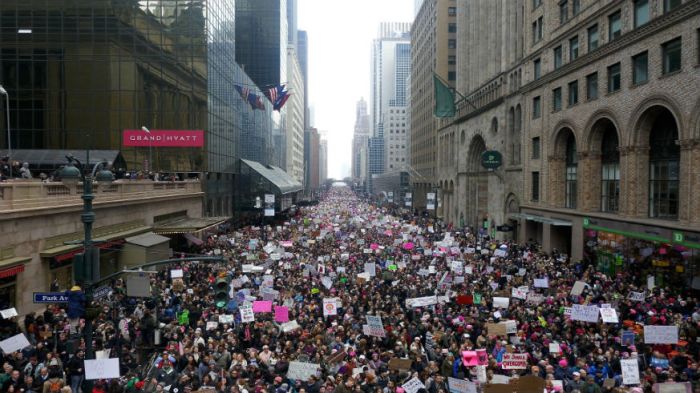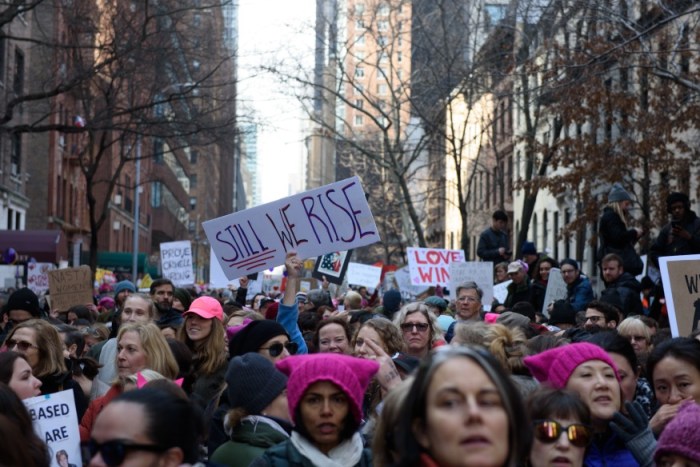Two years after filling the streets of U.S. cities to protest the start of Donald Trump’s presidency, thousands of women marched through New York City on Saturday to build political pressure against him ahead of the 2020 elections.
The loose movement around the marches has splintered as it enters its third year, and one of the various groups now involved has faced criticism it is anti-Semitic, which it denies.
“Over the last year, my sisters in Women’s March and I have faced accusations that have hurt my soul. Charges of anti-Semitism and neglecting our LGBTQIA family,” said Carmen Perez-Jordan, a Women’s March board member. “And I want to be unequivocal in affirming Women’s March and I and my sisters condemn anti-Semitism and homophobia and transphobia in all forms.”
But leaders of the groups say momentum has not slowed, and rallies celebrated unprecedented gains for women in congressional and state races in last year’s midterm elections.
Women’s March Chief Operating Officer Rachel Carmona said, “there is a role for everyone” no matter which group they join, adding decentralized movements had a kind of power that is “hard to strike at.”
Additional reporting by Reuters




















